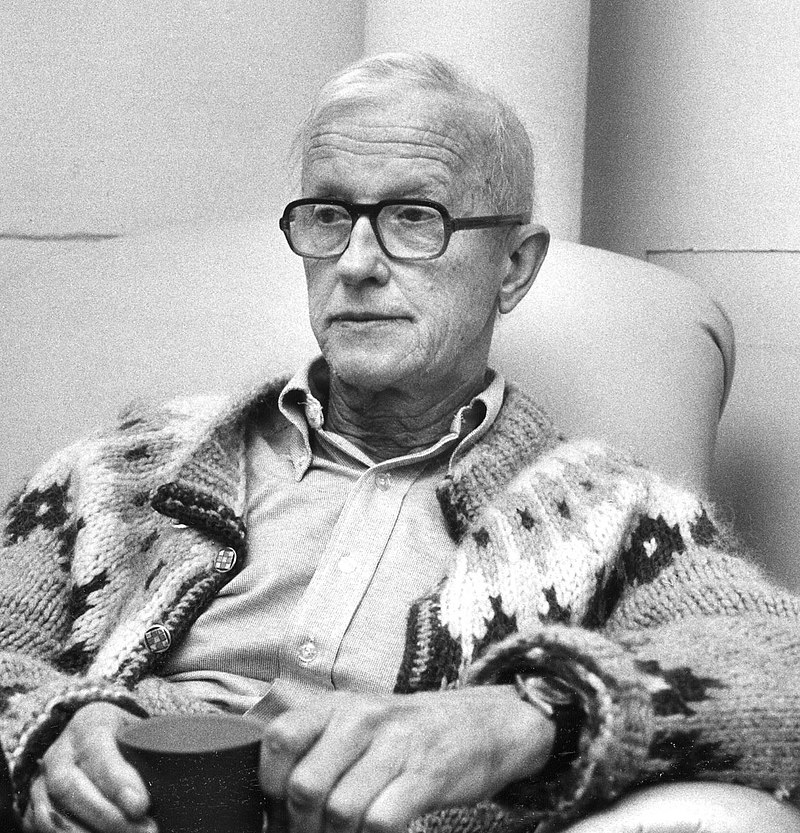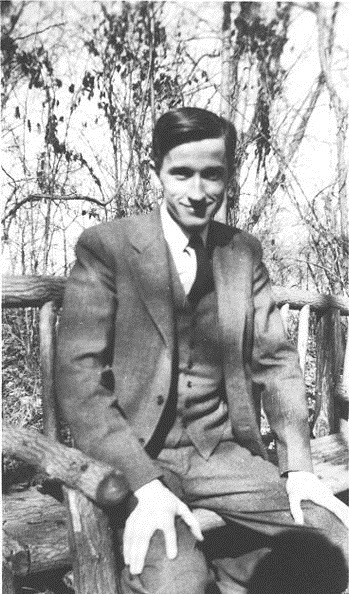<Back to Index>
- Biophysicist
Max Ludwig Henning Delbrück,
1906
PAGE SPONSOR


Max Ludwig Henning Delbrück (September 4, 1906 - March 9, 1981) was a German - American biophysicist. He won the Nobel prize for discovering that bacteria become resistant to viruses (phages) as a result of genetic mutations.
Delbrück was born in Berlin, German Empire. His father was Hans Delbrück, a professor of history at the University of Berlin, and his mother was the granddaughter of Justus von Liebig, eminent chemist.
In 1941, he married Mary Bruce, with whom he had four
children. Delbrück's brother Justus Delbrück, a lawyer,
his sister Emmi Bonhoeffer, and his brothers - in - law
Klaus Bonhoeffer and Dietrich Bonhoeffer, both executed in
the final days of Hitler's Germany, participated in the
German Resistance against the Nazi Regime.
Delbrück studied astrophysics, shifting towards theoretical physics, at the University of Göttingen. Having earned a Ph.D. in 1930, he traveled through England, Denmark and Switzerland. He met Wolfgang Pauli and Niels Bohr, who interested him in biology.
Delbrück returned to Berlin in 1932 as an assistant to Lise Meitner, who was collaborating with Otto Hahn on irradiation of uranium with neutrons. Delbrück wrote a few papers, including one in 1933 on gamma rays' scattering by a Coulomb field's polarization of a vacuum. His conclusion was theoretically sound but inapplicable to the case in point, though 20 years later Hans Bethe confirmed the phenomenon and named it "Delbrück scattering".
In 1937, he attained a Rockefeller Foundation fellowship
to research genetics of the fruit fly, Drosophila
melanogaster, in California Institute of
Technology's biology department. While at Caltech, Delbrück researched
bacteria and their viruses (bacteriophages
or phages). In 1939, with E.L. Ellis, he
co-authored a paper, "The growth of bacteriophage",
reporting that the viruses reproduce in one step,
not exponentially as do cellular organisms.
Delbrück remained in the US during World War II (1939-45), teaching physics at Vanderbilt University in Nashville, Tennessee, while continuing genetic research. In 1942, he and Salvador Luria of Indiana University demonstrated that bacterial resistance to virus infection is mediated by random mutation. This research, known as the Luria - Delbrück experiment, notably applied mathematics to make quantitative predictions, and earned them the 1969 Nobel Prize in Physiology or Medicine, shared with Alfred Hershey. Also that year, Delbrück and Luria were awarded by Columbia University the Louisa Gross Horwitz Prize.
In 1945, Delbrück developed a course in bacteriophage
genetics at Cold Spring Harbor Laboratory in Long Island,
New York. Delbrück's promotion of this "Phage Group" — which explored
genetics through researches on bacterial viruses — spurred
molecular biology's early development. In 1947, Delbrück
returned to Caltech as a professor of biology. From the
1950s on, he applied biophysical methods to problems in
sensory physiology rather than to genetics. Meanwhile, he
set up University of Cologne's institute for molecular
genetics.
Delbrück was influential in the 20th century's movement of physical scientists into biology. His inferences on genes' susceptibility to mutation was relied on by physicist Erwin Schrödinger in his 1944 book What Is Life?, which conjectured genes were an "aperiodic crystal" storing codescript and influenced Francis Crick and James D. Watson in their 1953 identification of cellular DNA's molecular structure as a double helix. In 1977, he retired from Caltech, yet remained Professor of Biology emeritus.
Max Delbrück died, at age 74, on the evening of Monday, 9 March 1981, at Huntington Memorial Hospital in Pasadena, California. On 26 to 27 August 2006 — the year Delbrück would have turned 100 — family and friends gathered at Cold Spring Harbor Laboratory to reminisce on his life and work. Although Delbrück supported research reductionism, he conjectured that ultimately a paradox — akin perhaps to the wave - particle duality of physics — would be revealed about life.